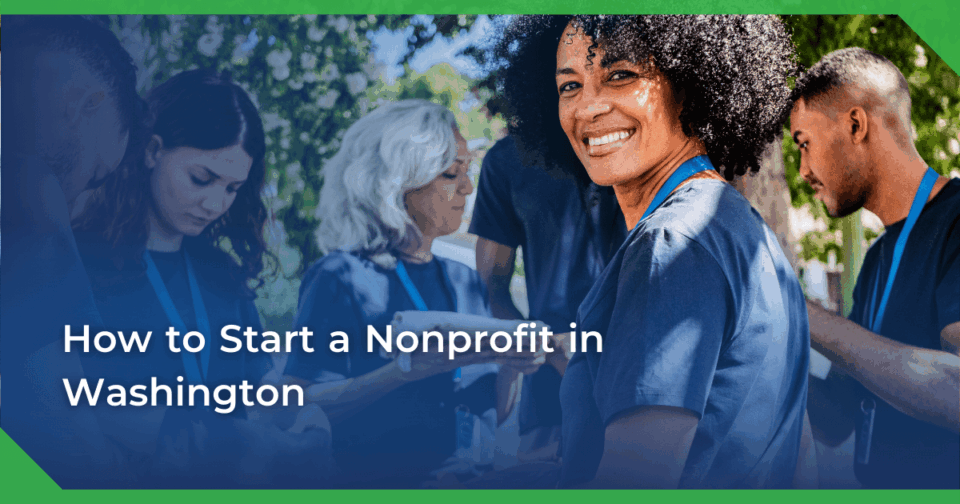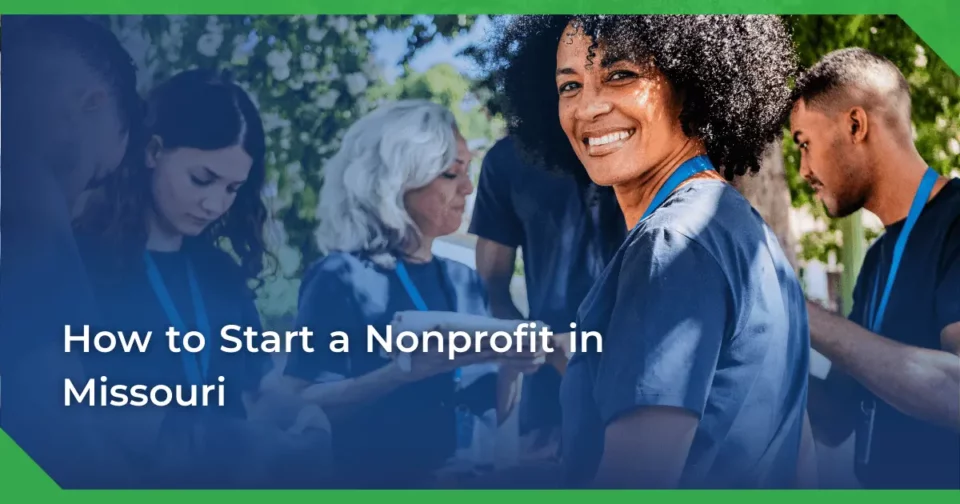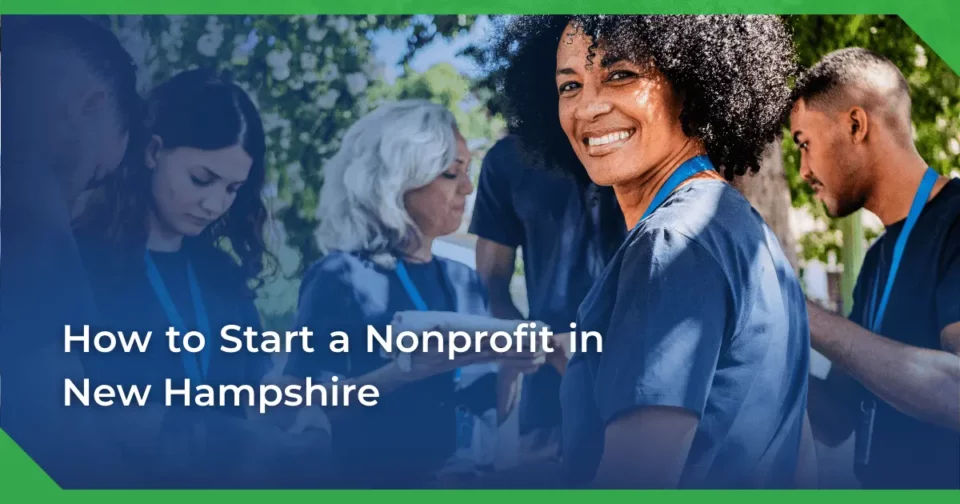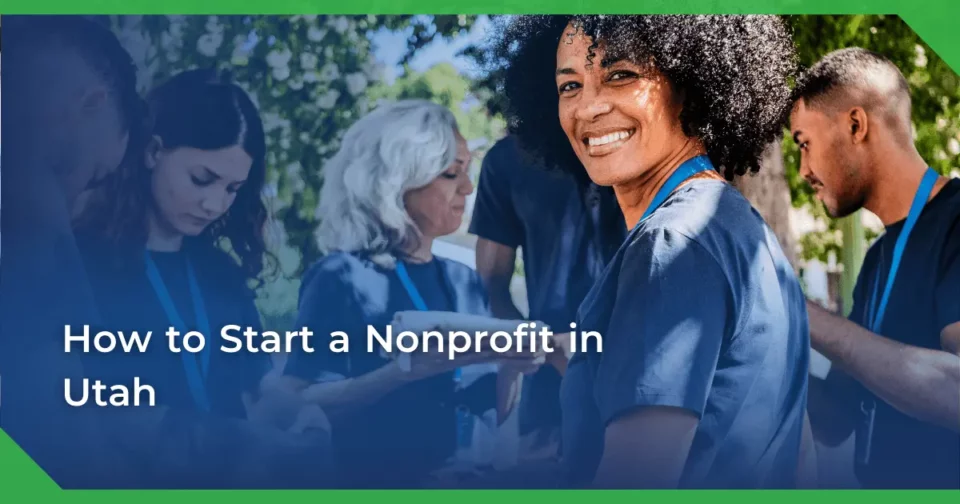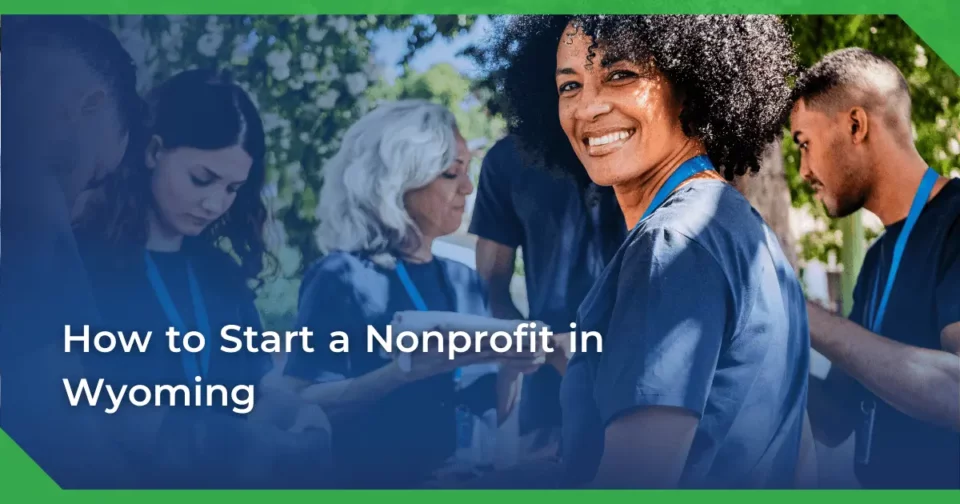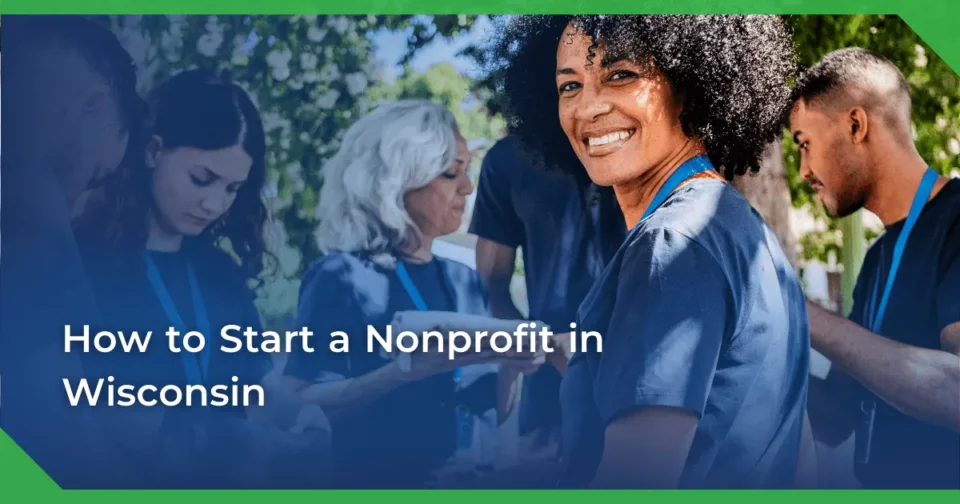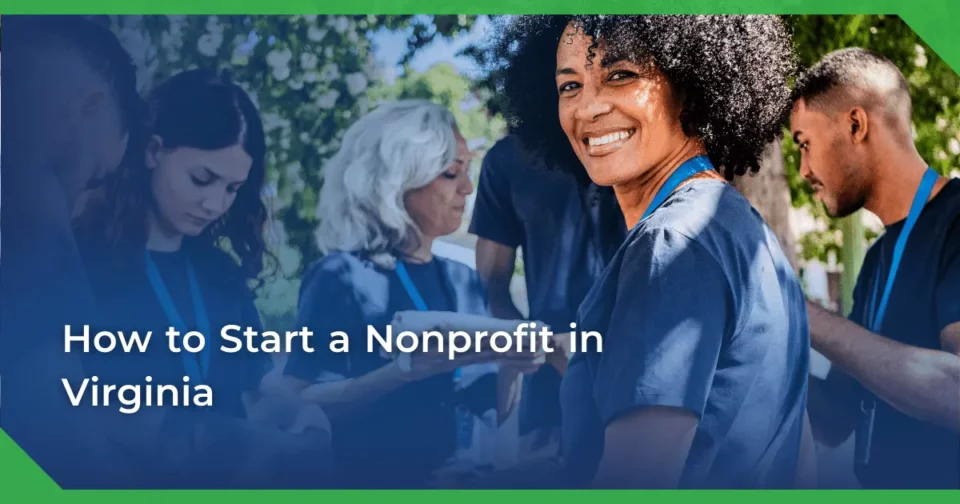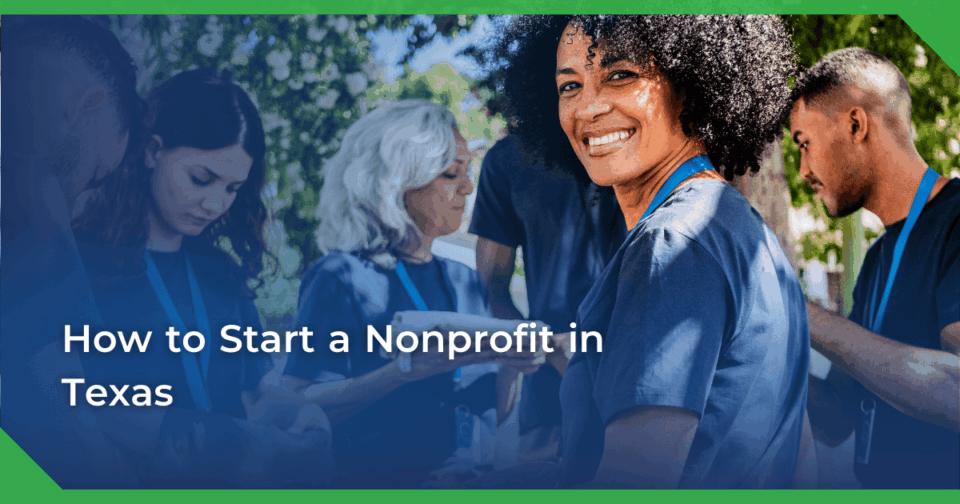
How to Start a Nonprofit in Florida: A Beginner’s Step-by-Step Guide (That Actually Works)
August 26, 2025
How to Start a Nonprofit in Hawaii: A Simple Step-by-Step Guide (2025)
August 26, 2025How to Start a Nonprofit in Georgia: Expert Step-by-Step Guide
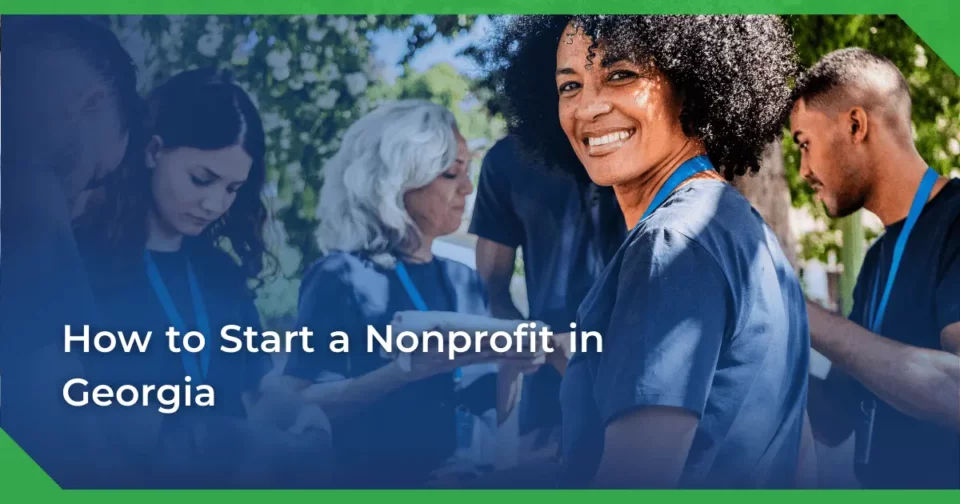
Whether you’re passionate about education, healthcare, or community development, starting a nonprofit in Georgia can transform your vision into meaningful impact. However, navigating the legal requirements, tax regulations, and operational setup might seem overwhelming at first.
Fortunately, breaking down the process into manageable steps makes it much easier to establish your nonprofit. From choosing your organization’s name to securing your 501(c)(3) status, we will walk you through everything you need to know about forming a nonprofit in Georgia. With Labyrinth, Inc.’s fully managed nonprofit formation services, you can navigate these complexities with confidence—our Nonprofit Compliance Specialists handle the intricate details while you focus on your mission.
Ready to make a difference in your community? Let’s dive into the essential steps to launch your nonprofit organization!
Planning Your Georgia Nonprofit
Before launching your nonprofit in Georgia, thorough planning lays the foundation for long-term success. A well-structured approach ensures your organization meets community needs effectively while maintaining compliance with state regulations.
Define Your Mission and Vision
Your mission statement serves as the cornerstone of your nonprofit, succinctly communicating your organization’s purpose and goals. A powerful mission statement should be specific, concise, and focused on three key elements:
- The cause or problem your organization addresses
- The actions you’ll take to support the cause
- The impact you aim to achieve
Your vision statement, on the other hand, outlines your organization’s long-term aspirations. Together, these statements guide decision-making and attract support for your cause. For instance, many successful Georgia nonprofits, such as the American Cancer Society based in Atlanta, demonstrate clear mission alignment through their programs and advocacy efforts, in alignment with guidance from the Georgia Secretary of State.
Research Similar Organizations
Georgia’s nonprofit sector is substantial, with 37,384 nonprofit organizations already operating across the state, employing 268,612 people, and representing over 7% of the state’s workforce, according to the Georgia Secretary of State. Therefore, conducting thorough market research becomes crucial.
Start by examining existing nonprofits in your target area to identify potential gaps in services. Consider these factors:
- Current community needs not being met
- Opportunities for collaboration with existing organizations
- Ways to differentiate your services
The Georgia charitable sector generates more than $57.50 billion in annual revenues, as reported by the Georgia Secretary of State, demonstrating the significant impact nonprofits can have. Rather than competing with established organizations, look for opportunities to complement existing services or address unmet needs in your community.
Create a Startup Budget
Understanding the financial requirements for starting a nonprofit in Georgia helps ensure adequate resources for launch and early operations. Here’s a breakdown of essential startup costs:
- Articles of Incorporation: $110.00
- Notice of Incorporation: $40.00
- Initial Annual Registration: $50.00
- IRS Form 1023 Application: $600.00 (standard) or $275.00 (Form 1023-EZ)
- Georgia Charitable Registration: $35.00
You’ve outlined community needs and drafted a mission statement. Now what? Let’s tackle the state filings that move you forward. Beyond these initial filing fees, plan for the time investment required—expect to spend 10-20 hours completing formation documents and another 5-10 hours on your IRS exemption application.
The charitable sector in Georgia demonstrates strong financial health, with foundations annually giving over $1.10 billion. Furthermore, Georgians contribute $7.20 billion to charity each year, representing 4.31 percent of household income, according to the Georgia Secretary of State. These statistics indicate substantial potential for fundraising and sustainable operations when proper planning is in place.
For detailed guidance on establishing your nonprofit organization, consider consulting with professionals who specialize in nonprofit formation. Labyrinth, Inc.’s transparent pricing ensures no hidden fees, and our comprehensive services include EIN acquisition, making the financial planning process straightforward. Moreover, understanding that Georgia foundations, such as the Robert W. Woodruff Foundation, support various educational and community initiatives can help shape your funding strategy, as highlighted by the Georgia Secretary of State’s guide on charities.
Legal Requirements in Georgia
Establishing legal compliance forms the backbone of your nonprofit journey in Georgia. Following state regulations ensures your organization operates smoothly from day one.
Choose Your Nonprofit Name
Selecting a distinctive name sets your organization apart. In Georgia, your nonprofit name must include terms like “Corporation,” “Incorporated,” “Company,” “Limited,” or their abbreviations. The name must be unique and distinguishable from other registered entities in the state, as specified by Georgia Secretary of State rules.
To secure your chosen name:
- Search the Georgia Secretary of State’s website database
- Reserve the name for 30 days by paying $25 online or $35 for paper filing
- Ensure it consists of English alphabet letters, Arabic numerals, and standard keyboard symbols, per Georgia Secretary of State regulations
File Articles of Incorporation
Filing Articles of Incorporation officially establishes your nonprofit in Georgia. Remember: forming your nonprofit corporation with the state does not automatically grant federal tax-exempt status—you’ll need to apply separately to the IRS. The document requires specific information:
- Name and address of the organization
- Purpose statement aligned with IRS requirements for 501(c)(3) eligibility
- Registered agent details
- Initial board of directors information
- Dissolution clause specifying that upon dissolution, assets will be distributed to another 501(c)(3) organization
- Incorporator’s signature.
Submit your Articles to the Georgia Secretary of State’s office (404-656-2817, sos.ga.gov) along with a $110 filing fee, as detailed on the Georgia.gov corporation registration page. Subsequently, publish a notice of incorporation in your county’s newspaper within one business day, which costs $40.
Processing times vary based on urgency:
- Standard: 15 business days
- 2-day service: Additional $100
- Same-day service: Additional $250
- 1-hour service: Additional $1,000, according to Georgia.gov.
Labyrinth, Inc.’s state-specific drop-off service can expedite this process in Georgia, ensuring faster approval of your formation documents—a crucial advantage when time is of the essence.
Get Your EIN Number
After your nonprofit is formed with the state, obtain an Employer Identification Number (EIN) before opening bank accounts or applying for tax-exempt status. This nine-digit number proves essential for:
- Opening bank accounts
- Filing tax returns
- Applying for tax-exempt status
- Managing employee payroll, as outlined by the IRS guide on EIN application.
Apply for your EIN through the IRS website at no cost. Remember these key points:
- Complete the application in one session
- Provide accurate information about your organization
- Keep your EIN documentation secure
- Use it for all future IRS communications regarding your EIN.
After receiving your EIN, file an initial annual registration within 90 days of incorporation, as per the Georgia Secretary of State’s filing procedures. This registration must list three principal officers and be submitted to the Secretary of State.
For specialized guidance on establishing your nonprofit and securing tax-exempt status, consider working with nonprofit formation experts who understand Georgia’s requirements. Labyrinth, Inc. includes EIN acquisition as part of our comprehensive formation services, eliminating one more step from your to-do list.
Building Your Board
A strong board of directors forms the cornerstone of a successful nonprofit organization. In Georgia, assembling the right leadership team requires careful consideration of both legal requirements and strategic needs.
Required Board Positions
Georgia law mandates specific board positions to ensure proper governance. Initially, your nonprofit must have at least one director. However, to meet IRS requirements for 501(c)(3) tax-exempt status, we recommend having at least three unrelated board members. Each director must be at least 18 years old, although Georgia imposes no residency or membership requirements.
Essential officer positions include:
- President
- Vice President
- Secretary
- Treasurer
These officers play distinct roles in managing your organization’s affairs. Although one person can hold multiple positions, the roles of president and secretary must remain separate. Board members serve minimum one-year terms, with a maximum term limit of three years, as per nonprofit governance guidelines.
The board’s primary responsibilities encompass:
- Overseeing financial management and controls
- Developing strategic plans
- Ensuring compliance with state and federal regulations
- Supervising the executive director
- Supporting fundraising initiatives
Finding Qualified Directors
Identifying and recruiting capable board members demands a systematic approach. Begin by assessing your organization’s current needs and strategic goals. Consider creating a board development committee to oversee the recruitment process.
When evaluating potential candidates, look for individuals who demonstrate:
- Passion for your nonprofit’s mission
- Understanding of fiduciary responsibilities
- Experience in nonprofit governance
- Strategic networking capabilities
- Cultural alignment with your organization
To streamline your search, consider these proven recruitment strategies:
- Tap into existing networks of volunteers and donors
- Partner with local organizations offering board training programs
- Utilize board matching services available through Georgia nonprofits
- Connect with professional associations in your field
Once you’ve identified promising candidates, implement a thorough screening process. This includes reviewing applications, conducting interviews, and checking references. For specialized guidance on building an effective board, consider working with nonprofit formation experts who understand Georgia’s unique requirements. Labyrinth, Inc.’s Nonprofit Compliance Specialists, with 15+ years of nonprofit leadership experience, can provide valuable insights on board composition and governance best practices.
Remember that board diversity strengthens decision-making capabilities. Seek members with complementary skills and backgrounds, similar to assembling players on a sports team. Consider factors like professional expertise, community connections, and demographic representation.
After selection, ensure proper onboarding through:
- Comprehensive orientation programs
- Clear communication of roles and expectations
- Review of bylaws and governance policies
- Introduction to current board members and staff
Your board should adopt bylaws during its first organizational meeting. A flexible bylaws template works well for startups and can be revised as your organization grows. These bylaws must outline:
- Meeting procedures and voting requirements
- Committee structures and responsibilities
- Officer duties and succession planning
- Conflict of interest policies
For detailed information about establishing your nonprofit’s leadership structure, consider consulting with experienced professionals who can guide you through the process effectively. Labyrinth, Inc.’s secure, SOC 2 Type II nonprofit client portal provides a centralized platform where board members can access important documents and track organizational progress.
Certainly, maintaining an active and engaged board requires ongoing attention. Schedule regular training sessions, conduct annual evaluations, and establish clear communication channels between board members and staff. Through careful selection and proper management, your board can effectively steer your organization toward achieving its mission while maintaining compliance with Georgia’s nonprofit regulations.
Setting Up Operations
Proper operational setup ensures your nonprofit’s long-term sustainability. From managing finances to establishing policies, these foundational steps protect your organization’s interests.
Open a Bank Account
After receiving your EIN, opening a dedicated bank account becomes essential. Most banks require:
- Articles of incorporation
- EIN documentation
- List of officers
- Board meeting minutes authorizing the account opening
- Signed bylaws
Consider maintaining separate accounts for restricted and unrestricted funds to ensure proper tracking. Additionally, banks must report cash transactions exceeding $10,000, making accurate bookkeeping crucial.
Create Essential Policies
Implementing comprehensive policies safeguards your organization’s operations. Key policies include:
- Financial Management Policy
- Authorization procedures for payments
- Check signing protocols
- Credit card usage guidelines
- Expense reimbursement procedures
Beyond financial controls, develop policies addressing:
- Record retention requirements
- Whistleblower protection
- Conflict of interest management
- Gift acceptance guidelines.
Set Up Accounting Systems
Establishing robust accounting practices ensures financial transparency and compliance. Your system should:
- Track restricted funds separately
- Monitor grant activities
- Document all financial transactions
- Generate regular financial statements.
As of July 2023, Georgia nonprofits must designate specific officer roles:
- Chief Executive Officer
- Secretary
- Chief Financial Officer.
Implement internal controls through:
- Proper segregation of duties
- Clear authorization hierarchies
- Regular financial reviews
- Documented procedures.
For specialized guidance on establishing compliant financial systems, consider working with nonprofit accounting experts. Professional support ensures adherence to Generally Accepted Accounting Principles (GAAP) and facilitates annual reporting requirements. Labyrinth, Inc.’s secure nonprofit client portal helps you organize and store these critical financial documents, making annual compliance reporting more manageable.
Your accounting system must support Form 990 preparation, which details:
- Income and expense activities
- Organizational structure
- Major donor information
- Prior year accomplishments.
Financial reporting requirements vary based on annual revenue, as outlined by the Georgia Secretary of State:
- Above $1 million: Certified financial statement
- $500,000-$1 million: Reviewed financial statement
- Below $500,000: Basic financial statement
To streamline operations, consider implementing accounting software that integrates with donor management systems. This automation reduces manual entry errors and ensures accurate categorization of funds.
Getting Tax Exempt Status
Securing tax-exempt status marks a crucial milestone in establishing your nonprofit organization. Understanding both federal and state requirements ensures a smooth application process.
Complete Form 1023
The Internal Revenue Service (IRS) requires Form 1023 for obtaining 501(c)(3) tax-exempt status. Remember: “nonprofit” status from your state incorporation does not automatically mean your donations are tax-deductible—you must receive IRS approval first. Organizations with projected annual gross receipts under $50,000 and total assets below $250,000 qualify for Form 1023-EZ, a streamlined version.
The standard Form 1023 application includes:
- Detailed organizational structure
- Financial projections
- Operational procedures
- Governance policies
Application fees vary based on form type:
- Form 1023-EZ: $275
- Standard Form 1023: $600
Processing timelines differ significantly:
- Form 1023-EZ: Less than 1 month
- Standard Form 1023: 3-6 months
Since January 2020, all Form 1023 applications must be submitted electronically through IRS Pay.gov portal. To ensure successful submission:
- Register for a Pay.gov account
- Search for Form 1023
- Complete all required sections
- Submit payment electronically
For specialized guidance on completing your tax-exempt application, consider working with experienced professionals who understand IRS requirements. Labyrinth, Inc. offers a 100% IRS tax exemption approval guarantee, providing peace of mind as you navigate this critical step. We handle both 1023 and 1023-EZ filings, as well as 1024 filings for 501(c)(4) organizations, ensuring your application meets all requirements.
State Tax Exemptions
Upon receiving federal tax-exempt status, your organization automatically qualifies for Georgia income tax exemption. Nevertheless, specific documentation requirements exist, as per the Georgia Department of Revenue’s FAQ:
- Attach IRS determination letter
- Include Articles of Incorporation
- Submit bylaws with state tax returns
Regarding sales tax exemptions, Georgia maintains strict criteria. Only specific categories of nonprofits qualify, including:
- Licensed nonprofit hospitals
- Mental health facilities
- Nursing homes
- Hospices
- Private schools (grades 1-12)
- Blood banks
- Food banks.
Religious institutions receive limited sales tax exemption benefits, specifically:
- Tax-free sales permitted for 30 days annually
- Exemption applies only to fundraising activities.
To obtain sales tax exemption:
- Apply through Georgia Tax Center (dor.georgia.gov)
- Present Letter of Authorization to sellers
- Renew authorization annually.
For comprehensive guidance on establishing your nonprofit’s tax status, consider consulting with tax professionals familiar with Georgia regulations. Labyrinth, Inc.’s end-to-end formation support includes managing all state and federal correspondence during the application process, ensuring nothing falls through the cracks.
Organizations must file annual returns based on their classification, as detailed by the Georgia Department of Revenue:
- Form 990, 990-EZ, or 990-PF with Georgia Department of Revenue (404-417-2400, dor.georgia.gov)
- Form 600-T if unrelated business income exists
- Form 5500 for employee benefit plans.
Keep essential documentation readily available, according to the Georgia Department of Revenue:
- IRS determination letter
- Formation documents
- Annual tax returns
- Financial statements
Beyond income and sales tax considerations, remember that charitable solicitation registration is a separate requirement. Georgia requires nonprofits that fundraise to register with the Secretary of State’s Charities Division before soliciting donations. This registration, which costs $35 annually, must be renewed each year and includes filing financial reports based on your revenue level, according to the Georgia Secretary of State’s Charities Division.
Conclusion
Starting a nonprofit in Georgia requires careful planning, dedication, and attention to detail. Each step, from defining your mission to securing tax-exempt status, plays a vital role in building a strong foundation for your organization.
Success depends on following state regulations, establishing proper governance structures, and maintaining sound financial practices. Therefore, partnering with experienced nonprofit formation specialists can help navigate complex requirements while avoiding common pitfalls. With Labyrinth, Inc.’s expert services, nonprofit compliance becomes easy—our Nonprofit Compliance Specialists combine decades of experience with modern technology to handle your registrations and renewals through our secure client portal, so you can focus on your mission. Plus, with transparent pricing and no hidden fees, you’ll know exactly what to expect throughout the process.
Your commitment to proper documentation, board development, and operational excellence will determine your nonprofit’s long-term impact. Additionally, staying current with Georgia’s nonprofit regulations ensures continued compliance and growth opportunities. Labyrinth, Inc.’s comprehensive services, including first-year fundraising registration in bundled packages, position your nonprofit for success from day one.
Above all, remember that your nonprofit’s success directly impacts the communities you serve. As a result, taking time to properly establish your organization through proven formation strategies creates a strong platform for achieving your mission and making lasting change in Georgia. With Labyrinth, Inc.’s 100% money-back guaranteed 501(c)(3) approval and support for reinstatement of revoked tax-exempt status, you can proceed with confidence knowing expert help is available every step of the way.
Start your nonprofit journey today with confidence, knowing you have the essential knowledge and resources needed to build an organization that truly makes a difference.
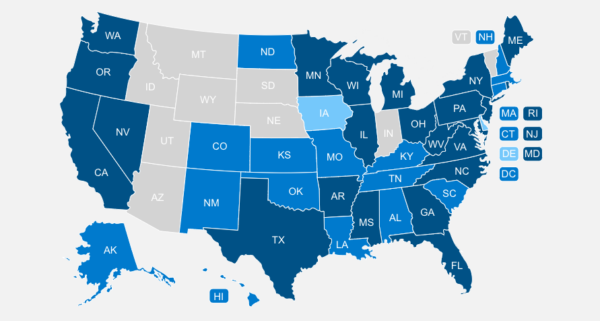

![Your 501(c)(3) Approval Guaranteed{{ include_custom_fonts({"Museo Sans":["Bold","Bold Italic","Regular","Regular Italic"]}) }}](https://no-cache.hubspot.com/cta/default/560178/interactive-194101957210.png)
![Start Your Nonprofit with Confidence{{ include_custom_fonts({"Museo Sans":["Bold","Bold Italic","Regular","Regular Italic"]}) }}](https://no-cache.hubspot.com/cta/default/560178/interactive-194101957151.png)
